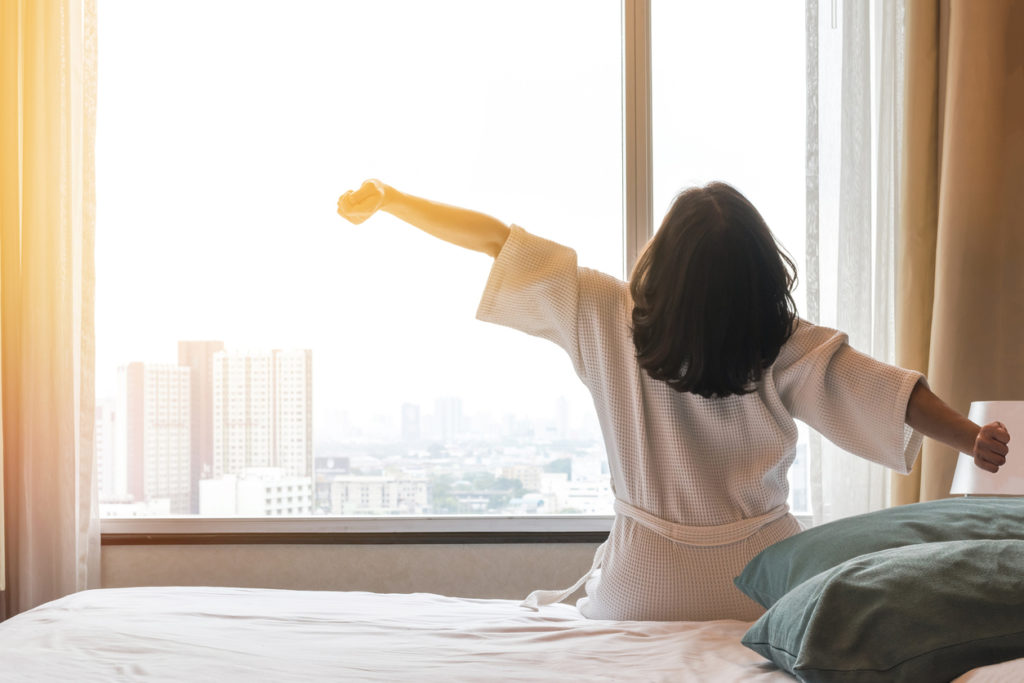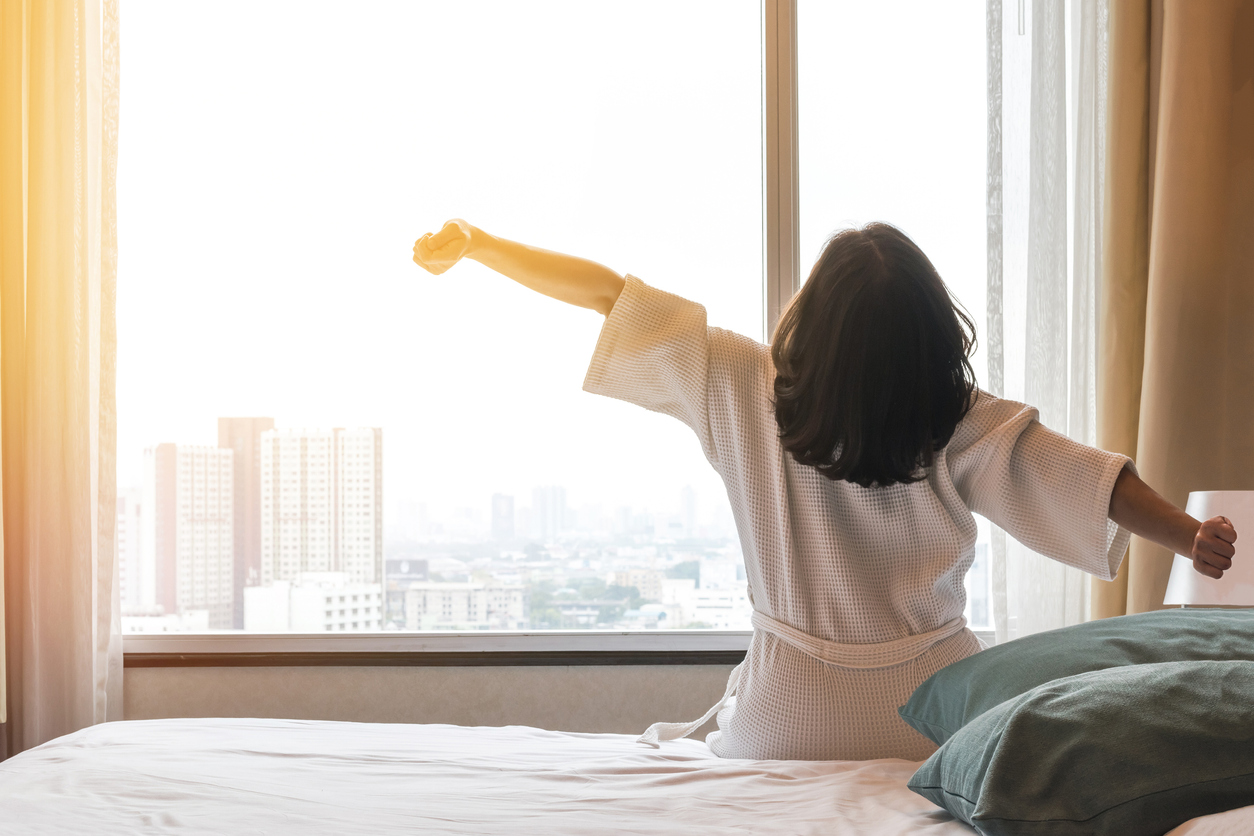 Contributed by Giles Watkins, coach, mentor and author of Positive Sleep: A Holistic Approach To Resolve Sleep Issues and Transform Your Life.
Contributed by Giles Watkins, coach, mentor and author of Positive Sleep: A Holistic Approach To Resolve Sleep Issues and Transform Your Life.
The words “sleep” and “entrepreneur” may seem like strange bedfellows unless you are running a start-up in areas such as making mattresses or developing a new Sleep app. However sleep is a wonderful, natural and free resource that anyone starting or running a business must draw on optimally to be the best they can be for their customers, colleagues, stakeholders and loved ones.
Way too often, in my opinion, there is an emphasis on the downside of not getting enough quality sleep. Surely it’s far better to emphasize the many benefits of getting enough sleep. So whilst I share the agony of a decade of my own sleeping problems in my book Positive Sleep, my emphasis is more on the life-changing effects of getting the sleep you need.
So what is enough sleep? How can sleep help you? Are there any tips that can really help you sleep better? Sleep science itself is really only about 100 years old, and multiple studies over that time show that the vast majority of us need 7.5 to 8 hours of sleep in a 24-hour period. This need not necessarily be in one go, so the opportunity for a nap (NASA recommends 26 minutes!), ideally before 3 pm can truly help us catch up on our rest during the day.
One part of us that disproportionately benefits from being well-rested is the prefrontal cortex of the brain, which directs our executive functions—areas such as problem-solving, reasoning, organization, planning and carrying out plans.
How Sleep Benefits Your Professional Performance
Four qualities an entrepreneur needs which are especially enhanced by good sleep are:
- Results orientation: Critically linked to attention and concentration, this requires the ability to both stay focused on the details and also see the bigger picture.
- Solving problems effectively: The mental capacities supporting this and strongly affected by sleep are creativity, development of insight and pattern recognition. A good night’s sleep is especially useful in helping spot shortcuts to solving problems.
- Seeking different perspectives: The mental capacities of learning (and willingness to learn), memory and decision-making all require quality and a good quantity of sleep to enable you to seek different perspectives. Weighing options, plus avoiding tunnel vision and bias, are vital to making the best decisions possible.
- Supporting others: This vital ability requires you first have some understanding of the other person. Non-verbal queues through facial expressions or tone of voice are key. When sleep-deprived, we are more likely to misread these cues.
And it’s not just the mental side of running a business that can be boosted by being better rested. We physically need the regeneration that getting enough sleep provides. Entrepreneurs can learn a lot from performance athletes in this regard. For example:
- Improved reaction times: Research has shown that properly rested people getting an average of 7.5 hours of sleep a day can have reaction times two to three times faster than the sleep-deprived.
- Longer careers: Roger Federer is famous for sleeping about 9 hours a night, even hiring a separate house for his family at Wimbledon so he’s not woken up by the kids. And a study of Major League Baseball showed an almost linear correlation between regular and plentiful sleep to performance and career length.
- Better accuracy and faster sprint times: This has been observed in basketball, swimming plus tennis among other sports. And maybe cheetahs can teach us something, too. Among the fastest animals on the planet, traveling from 0-60 mph in about three seconds, they typically sleep 18 hours a day.
How to Sleep Better Every Night
So what can busy entrepreneurs do about getting more sleep? Here are five suggestions that have worked for me in my own “busyness” life and helped to transform the way I feel every day.
- Carefully manage (or quit) the caffeine! I was a seven-espressos-a-day man when I quit in 2015. And what I realized after I quit was how much coffee had interfered with my sleep. Caffeine can be found in all black and green teas and many energy drinks. Remember also that “decaffeinated” merely means less caffeine, not no caffeine! Cutting down how much you take in and avoiding it after 2 pm typically helps people sleep better.
- Exercise. Fitting in some form of exercise regularly has been shown to help you sleep better. Finding ways to introduce more walking into your daily routine can really help. And tracking what you do via an app provides a great sense of satisfaction to many.
- “Bookend” your night. Give yourself enough time (ideally one hour at least) at the start and end of the day to tidy up, relax, wash, read and chat. Allowing yourself to “let the day out” and wind down helps to quiet your mind. By the same token, it takes our brains some time to warm up in the morning so try respecting this.
- Avoid smartphones and electronic tablets. Late at night and early in the morning it’s a great idea to avoid the blue light from (and contents of) these screens. Linked to number 3 above, you give yourself a much better chance of sleep this way.
- Take magnesium. This element has many properties, one of which is to support better sleep. We don’t generate it naturally in our bodies so need to ingest magnesium in some way. Whilst this can be through magnesium tablets or foods such as broccoli, the most efficient way is through the skin. Magnesium spray is available if a bath in Epsom salts or bath oil rich in magnesium is not available.
I’ll leave the last word to a former colleague of mine, Tanya Kabalin. Tanya hails from a family of business owners and founded her own, Olakira, after heading up Shell’s Downstream business in South Africa. She writes, “I believe the leaders who make the greatest impact are those who consciously create time, space and energy to master the art of managing the immediate pressures of ‘now’ whilst imagining and building the ‘new.’ And this can’t be done without good health and enough rest. Great leaders know this and work deliberately hard to achieve it.”
Giles Watkins, author of Positive Sleep: A Holistic Approach To Resolve Sleep Issues and Transform Your Life, is a coach and mentor with both Aberkyn and Vistage. Watkins has over 30 years of global business and general management experience in enabling decision-makers to solve problems, achieve balance, deliver superior results and sleep better at night. For more information please visit LIDPublishing.com.
Categories: BUSINESS GROWTH HEALTH LEADERSHIP WORK-LIFE INTEGRATION

